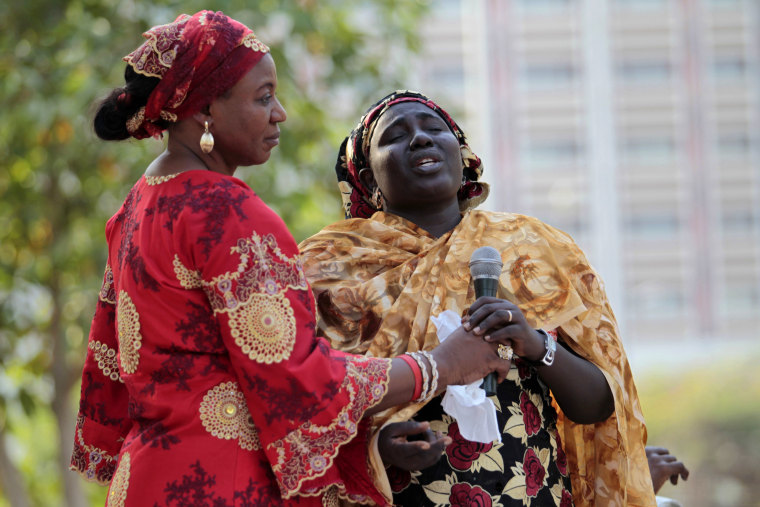Terror experts and U.S. officials say a Boko Haram assault Wednesday on a small city on the northern border of Nigeria may have killed as many as 2,000 civilians.
Many survivors fled into the nearby waters of Lake Chad, where some drowned and where others remain marooned on small islands, menaced by hippos, said a local government official.
In an interview with the BBC, district leader Musa Alhaji Bukar also estimated that 2,000 residents of Baga and 16 nearby towns had been killed by the Islamist terror group, and that Baga was now "virtually nonexistent," which would make the massacre among the most deadly terror attacks in history.
American experts say such reports are credible and that officials from Nigeria's central government, who have put the body count in the hundreds, are prone to underestimating death tolls.
A U.S. counterterrorism official said the tally of 2,000 deaths "may not be that far off."
John Campbell, a former ambassador to Nigeria who is now a senior fellow at the Council on Foreign Affairs, also agreed that the estimate of 2,000 was "not unreasonable," given the "magnitude" of the attack.
"We have to go by previous pattern and experience," said Campbell. J. Peter Pham, director of the Atlantic Council Africa Center, also told NBC News he believed the number was "credible."
All three, however, cautioned that getting an accurate death total was nearly impossible.
The attacks, a coordinated assault on the city and nearby towns, was brutal even for a terror group with a history of mass killings. According to the U.S. counterterrorism official, Boko Haram militants went door-to-door killing families, then strategically placed improvised explosive devices in the streets to funnel survivors into areas where firing squads were pre-positioned. "They were mowed down" by automatic weapons fire, the official said.
The villages were then set on fire, and militants moved on to other areas to repeat the process, officials told BBC.
Those who survived the deadly gauntlet tried to take refuge in Lake Chad, huddling on islands near the shallow lake's marshy shore.
"These are not stable islands, more like sand bars," explained Pham. "The topography, with the marshes and hippos, gives you a flavor of the misery those who've escaped are facing."
Wednesday's attacks came four days after Boko attacked a Nigerian military base near Baga. Ironically, Baga was supposed to be the main base for joint operations against the terrorist group, the centerpiece of a French-sponsored alliance of Nigeria, Cameroon, Niger and Chad. It was overrun in a day. Nigeria troops, the only ones on hand, once again abandoned their post -- leaving the city and villages open to attack.
Experts said Boko Haram, like ISIS in Syria and Iraq, is trying to amass territory. Boko Haram has already declared a caliphate 100 miles south of Baga in Gwoza, and may be trying to expand its geographic reach beyond Nigeria's borders.
